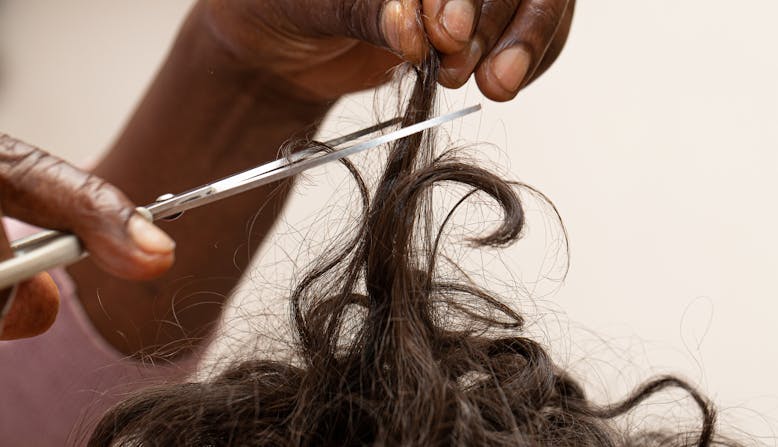People of all skin tones, races, and ethnicities can develop psoriasis, however, that doesn't mean it looks the same on everyone. Unfortunately, there can be significant barriers for people of color to receive accurate diagnosis and treatment for their psoriatic disease. Because of this, there may be more people with skin of color living with psoriasis than is reported. NPF is here to help with resources, advice, and stories specifically for you to help you live the healthy and happy life that you deserve.
Skin of Color Resource Center

Frequently Asked Questions
Can people of different skin types get psoriasis?
People of all races and ethnicities can develop psoriasis. In research to date, psoriasis has been found more frequently among Caucasians (3.6%) than in Asians (2.5%), Latinx (1.9%) and African Americans (1.5%). [1] This difference may be because psoriasis has been more easily identified in people with lighter skin and misidentified in people with darker skin types. [2] But there may be more people with skin of color living with psoriasis than is reported.
What does psoriasis look like on skin of color?

Psoriasis may look different on different skin types. On darker skin types, psoriasis may look salmon, dark brown, purple, or violet with grayish scale. [2,3] On lighter skin, psoriasis often looks red with a silvery scale on top. [2]
Here are more ways that psoriasis may look different on darker skin types [2]:
• Plaques may be thicker and have more scaling.
• Patients may have more skin affected by psoriasis than patients with lighter skin.
• Active psoriasis flares may be misdiagnosed as post-inflammatory hyperpigmentation (dark patches on the skin).
How can I get a correct diagnosis?
Since psoriasis can look like other skin conditions, on any color of skin, it is important to make sure you are getting a correct diagnosis.
To get a correct diagnosis, it is best to see a dermatologist. Also, it may help to see a dermatologist who has experience diagnosing psoriasis in people who have the same skin color as you. If you feel that you are not getting a correct diagnosis, you can get a second opinion from another provider.
Visit the Health Care Provider Directory to find providers who are experienced treating psoriasis and patients with all skin colors.
Visit the Health Care Provider Directory to find providers who are experienced treating psoriasis and patients with all skin colors.
Stories

Ayesha’s Story
Black Girls, Blue Magic & Black Girl Magic
.jpg?ixlib=gatsbyFP&auto=compress%2Cformat&fit=max&rect=0%2C43%2C835%2C480&w=778&h=447)
Treating Skin of Color
For some psoriasis patients, getting the right diagnosis isn’t always so black and white. And once minorities receive the proper diagnosis, they often face unique risks, challenges, and stigmas.

Volunteer Spotlight: Shubana Mohammad
Growing up with psoriasis and psoriatic arthritis inspired Shubana Mohammad to give back through volunteering.

No, It’s Not Contagious
A Dominican-American man with psoriasis fends off the usual annoying questions, battles his anger, searches for the right treatment, and helps raise awareness.
.png?ixlib=gatsbyFP&auto=compress%2Cformat&fit=max&rect=0%2C0%2C1175%2C675&w=778&h=447)
Fashion Forward
As a fashion lover with psoriasis, Alisha Bridges knows that looking great and feeling comfortable in the latest styles is completely possible.
Resources

Psound Bytes™ Podcast: Plaque Psoriasis in Skin of Color
Patient advocate Alisha Bridges and dermatologist Dr. Mona Shahriari discuss a study dedicated to people of all skin tones.

Why Is Psoriasis Often Misdiagnosed in Skin of Color?
Too often people with darker skin tones struggle for an accurate diagnosis compared with those with fair skin.
.png?ixlib=gatsbyFP&auto=compress%2Cformat&fit=max&rect=13%2C0%2C1253%2C720&w=778&h=447)
Webinar: Psoriasis and Skin of Color
Hear Dr. Tiffany Mayo present features of psoriasis in skin of color, challenges that impact diagnosis, treatment choices, and tips for caring for skin of color with psoriasis.

How Health Disparity Affects Health Care
Those with skin of color living with psoriatic disease see disparities in health care, disease burden, and representation.

Equal Access to Care
If you are living with psoriasis and reside in an area with limited or no access to a dermatologist, there are a few ways you can access care.

Cutting Hair with Kindness
The GHLF salon HEROES program brings education and empathy for those living with psoriasis, eczema, or alopecia, especially in communities of color.
Skin Care E-Kit
Request your Skin Care E-Kit to learn how to understand your skin and maintain skin health – includes the Psoriatic Disease and Skin of Color Quick Guide!

References
[1] Armstrong AW, Mehta MD, Schupp CW, Gondo GC, Bell SJ, Griffiths CEM. Psoriasis Prevalence in Adults in the United States [published online ahead of print, 2021 Jun 30]. JAMA Dermatol. 2021;e212007. doi:10.1001/jamadermatol.2021.2007
[2] Kaufman BP, Alexis AF. Psoriasis in Skin of Color: Insights into the Epidemiology, Clinical Presentation, Genetics, Quality-of-Life Impact, and Treatment of Psoriasis in Non-White Racial/Ethnic Groups [published correction appears in Am J Clin Dermatol. 2018 Feb 16;:]. Am J Clin Dermatol. 2018;19(3):405-423. doi:10.1007/s40257-017-0332-7
[3] Can You Get Psoriasis if You Have Skin of Color? AAD.org. https://www.aad.org/public/diseases/psoriasis/treatment/could-have/skin-color. Accessed April 26, 2021.